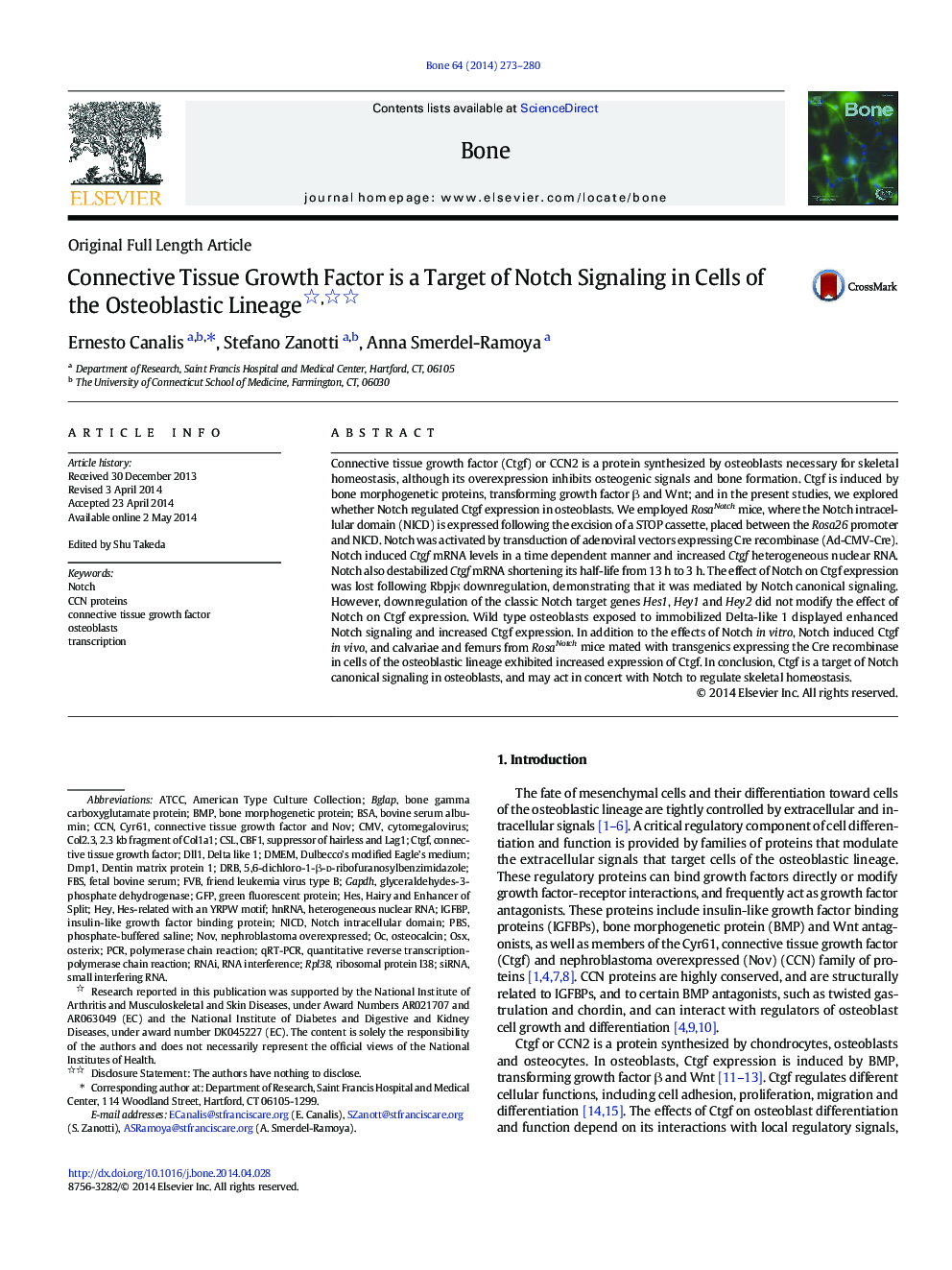| Article ID | Journal | Published Year | Pages | File Type |
|---|---|---|---|---|
| 5890087 | Bone | 2014 | 8 Pages |
Abstract
Connective tissue growth factor (Ctgf) or CCN2 is a protein synthesized by osteoblasts necessary for skeletal homeostasis, although its overexpression inhibits osteogenic signals and bone formation. Ctgf is induced by bone morphogenetic proteins, transforming growth factor β and Wnt; and in the present studies, we explored whether Notch regulated Ctgf expression in osteoblasts. We employed RosaNotch mice, where the Notch intracellular domain (NICD) is expressed following the excision of a STOP cassette, placed between the Rosa26 promoter and NICD. Notch was activated by transduction of adenoviral vectors expressing Cre recombinase (Ad-CMV-Cre). Notch induced Ctgf mRNA levels in a time dependent manner and increased Ctgf heterogeneous nuclear RNA. Notch also destabilized Ctgf mRNA shortening its half-life from 13 h to 3 h. The effect of Notch on Ctgf expression was lost following Rbpjκ downregulation, demonstrating that it was mediated by Notch canonical signaling. However, downregulation of the classic Notch target genes Hes1, Hey1 and Hey2 did not modify the effect of Notch on Ctgf expression. Wild type osteoblasts exposed to immobilized Delta-like 1 displayed enhanced Notch signaling and increased Ctgf expression. In addition to the effects of Notch in vitro, Notch induced Ctgf in vivo, and calvariae and femurs from RosaNotch mice mated with transgenics expressing the Cre recombinase in cells of the osteoblastic lineage exhibited increased expression of Ctgf. In conclusion, Ctgf is a target of Notch canonical signaling in osteoblasts, and may act in concert with Notch to regulate skeletal homeostasis.
Keywords
heterogeneous nuclear RNAhnRNADMP1CSLDll1IGFBPosterixFVBNICDBglapDRBCCNATCCqRT-PCRCTGFGAPDHPBSGFPFBS5,6-dichloro-1-β-d-ribofuranosylbenzimidazoleDMEMBSARNA interferenceSmall interfering RNARNAisiRNAbovine serum albuminOsteoblastsOsteocalcinHESOsxNotch intracellular domainTranscriptionfetal bovine serumcytomegalovirusCMVConnective tissue growth factorAmerican Type Culture CollectionPhosphate-buffered salineDulbecco’s modified eagle’s mediumBMPhairy and enhancer of splitnovNotchHeyquantitative reverse transcription-polymerase chain reactionpolymerase chain reactionPCRinsulin-like growth factor binding proteingreen fluorescent proteindentin matrix protein 1Bone morphogenetic proteinglyceraldehydes-3-phosphate dehydrogenase
Related Topics
Life Sciences
Biochemistry, Genetics and Molecular Biology
Developmental Biology
Authors
Ernesto Canalis, Stefano Zanotti, Anna Smerdel-Ramoya,
